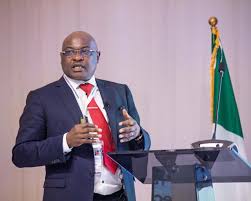Former Managing Director of the Nigerian Railway Corporation (NRC), Engineer Seyi Sijuwade, has raised serious concerns over the way rail accidents are investigated in Nigeria, saying the current system allows cover-ups, hides the truth, and puts the lives of Nigerians at risk.
Sijuwade made this known while speaking in Abuja at the Multimodal Transportation Stakeholders Workshop organised by the Nigerian Safety Investigation Bureau (NSIB). The event, which had the theme, “Strengthening Transport Safety Standards Through Collaboration,” brought together experts and stakeholders from the country’s transport sector.
He said the current system, where people working in the railway system investigate accidents involving their own operations, is flawed and unacceptable. According to him, this kind of self-investigation cannot guarantee honesty, and many times, it leads to reports that protect those responsible for the accidents.
The former NRC boss said many of the internal reports on rail accidents in Nigeria are usually written by people who either caused or contributed to the incident. He said this creates a conflict of interest and makes it difficult for Nigerians to trust the outcome of such investigations.
“We have seen cases where train drivers stay loyal to their line managers. When something goes wrong due to poor maintenance or bad decision-making, the internal reports are written in a way to protect those in charge. This is not how to get the truth,” he said.
Sijuwade added that this practice leads to false reporting, hiding of important evidence, and a general culture of fear where people are afraid to speak out because they don’t want to lose their jobs or offend their superiors.
“Those running the trains should not be the ones investigating the accidents. In most cases, critical evidence disappears — and that is not by mistake. It’s because of fear of punishment and the desire to protect colleagues,” he said.
He called on the federal government and stakeholders in the transport sector to give the Nigerian Safety Investigation Bureau more powers to carry out independent investigations. He warned that allowing railway operators to continue investigating themselves will only weaken public confidence and slow down needed safety reforms.
He said, “When a train crash happens, the NSIB should be the first agency to respond. Not the police. Not DSS. Because the NSIB is not there to arrest people or punish anyone. Their job is to find out what caused the accident and how to stop it from happening again.”
Sijuwade also pointed to international examples, especially the United Kingdom, where transport safety is handled by separate bodies. He explained that in the UK, there is the Office of Rail and Road for regulation and the Railway Accident Investigation Branch (RAIB) for accident investigations. Neither of the two operates trains.
“In Nigeria, the NRC does everything — they operate the trains, regulate themselves, and investigate their own accidents. That is wrong. It needs to change,” he added.
He further advised that the government should set up a new enforcement agency that will ensure that the safety recommendations from NSIB are followed. According to him, NSIB can only investigate and make recommendations, but cannot enforce them.
“You can’t expect the same body that caused the problem to fix it. It doesn’t work. We need a regulatory agency that will check what is happening, give licences, and punish people when they break the rules,” he said.
Sijuwade also spoke on the fear many train passengers and workers have when it comes to reporting safety concerns. He said many people choose to keep quiet because they are afraid of being punished or losing their jobs.
He called for a system where people can report safety problems without revealing their identities, and for legal protections for whistleblowers.
Lastly, he urged the NSIB to build strong partnerships with emergency response agencies like the police, Department of State Services (DSS), and the fire service, so that there can be a quick and united response during accidents on rail or other forms of transport.
“This workshop must not end here. We need to keep working together, share the investigation findings with the public, and keep the communication lines open. That’s the only way to build trust and ensure safety in our transport system,” Sijuwade said.
